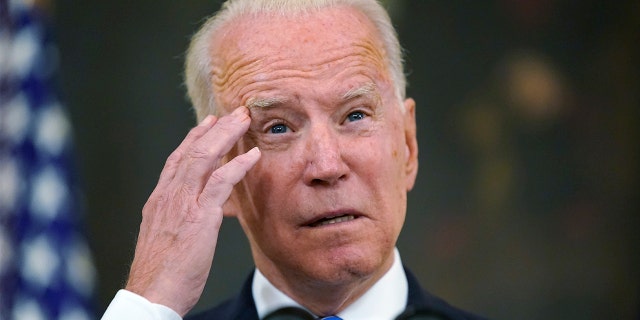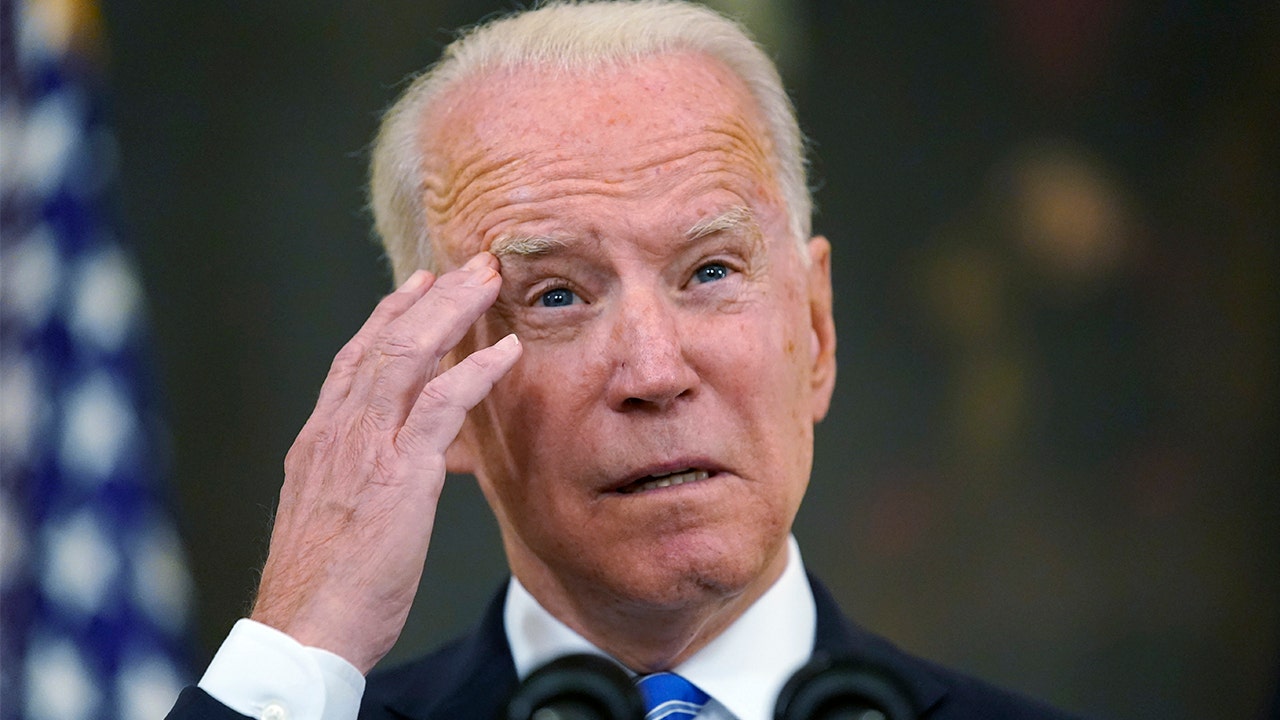by Tyler Olson
President Biden’s two major economic agenda items hang in the balance this week as Democrats continue “intense discussions” on their $3.5 trillion spending plan and some Republicans are warning that their support for the $1 trillion bipartisan infrastructure bill could evaporate Democrats ‘linked’ it with reconciliation.
“It’s gotten completely off the rails,” Maryland Republican Gov. Larry Hogan told Fox News. Hogan is a moderate who leads the group “No Labels,” which worked with moderate Republicans and Democrats to push for the infrastructure bill earlier this year. Hogan was one of its loudest boosters outside of Congress.
“We’ve worked for quite some time to negotiate a bipartisan infrastructure bill which did not include any of this additional spending. We’ve got the president to commit to it. We’ve got the Senate to pass it,” Hogan said. “And and then the House is now saying if we can’t jam through our three-and-a-half trillion dollars of other stuff that we took out of this compromise bill, that they’re not going to do it.”
The Senate passed the infrastructure bill last month with much fanfare. But House Speaker Nancy Pelosi, D-Calif., and progressives said for weeks that they won’t vote for it without guarantees that Congress will pass a reconciliation bill to their liking.
After a clash with moderates who wanted a guarantee of a vote on the infrastructure bill and were threatening to tank the budget resolution that allows Democrats to bypass the Senate filibuster, Pelosi set a tentative date for a vote on infrastructure for September 27.

President Joe Biden speaks about the economy and his infrastructure agenda in the State Dining Room of the White House, in Washington, Monday, July 19th, 2021. (AP Photo/Andrew Harnik) (AP Photo/Andrew Harnik)
House Majority Leader Steny Hoyer, D-Md., confirmed the Sept. 27 vote late this week, which prompted many progressive Democrats to balk, arguing the the reconciliation bill needs to be completed. This dynamic, in which infrastructure votes for some members are dependent on a certain result on reconciliation, is leading some House Republicans to question whether they should vote for the infrastructure bill.
“Speaker Pelosi is absolutely holding the infrastructure bill hostage… There are not just nine or 10 Democrats who are concerned about how breathtakingly large the $4.7 trillion combined package is. I mean there might be 100 Democrats that have some concerns,” Rep. Dusty Johnson, R-S.D., told Fox News this week. ”
“I think Nancy Pelosi did this whole process a real disservice by linking them together so strongly and she continues to do that. And that makes it very difficult to bring Republicans to the party,” Johnson, a member of the Problem Solvers Caucus (PSC), added. “It’s hard to get excited about the trillion dollar deal if in any way it makes it more likely that the three-and-a-half trillion dollar deal passes.”
“This divisive political gambit in the House may end up killing the infrastructure bill, which we desprately need,” Hogan said. “It seems as if now the Biden administration and Pelosi are trying to snatch defeat from the jaws of victory.”
While some Republicans are pointing their fingers at House progressives and Pelosi – Johnson called the “Squad” “legislative terrorists” – Hogan said Biden is fundamentally responsible for the tenuous situation.
“The real blame lies with the White House and the president because, you know, he he committed to us, to Republicans and Democrats, to the problem solvers, to our group in the Senate that he was going to push this bill,” Hogan said. “And it’s one thing to say you’re for a compromise and infrastructure bill. But, you know, it’s just kind of masquerading as compromise. If you say we’re not going to bring it up unless we can jam through all the other stuff in the three and a half trillion dollars. I mean, that’s a fake compromise. It’s a dishonest compromise.”
The White House did not respond to a request for comment about the status of the reconciliation and infrastructure negotiations and to respond to Hogan’s comments.
The governor’s centrist PAC No Labels is putting its weight behind the effort to stop the reconciliation bill. It released an ad this week asking, ‘You want to know what’s really crazy? $3.5 trillion divvied up in three weeks by one party – one party!”
Another threat to the president’s agenda is the possibility that moderate Democrats could bail on the reconciliation package if it’s too far to the left for their liking. Rep. Stephanie Murphy, D-Fla., last week, for example, slammed the rushed process and gaudy price tag of the reconciliation bill. She voted against the Ways and Means Committee portion of the bill but her office has made clear she still may be a “yes” on the final product.
Three Democrats on the House Energy and Commerce Committee voted against its portion of the bill over prescription drug price controls. And some moderates are making very clear they won’t support a bill that doesn’t repeal the cap on state and local tax deductions.
President Biden and Democrats, however, remain optimistic that they’ll be able to keep all fo their members on board for both major bills and eventually pass the president’s full agenda.
“The vision and knowledge of President Biden and Congressional Democrats, combined with the very hard work of everyone starting with Congressional staff, has enabled us to be on schedule in delivering the Build Back Better agenda,” Pelosi said this week.
“It’s gonna be a lot of intense discussions and negotiations over the next few weeks,” Senate Majority Leader Chuck Schumer, D-N.Y., said Wednesday. “There are members of our caucus who want it higher than 3.5. There are members of our caucus who want it lower than 3.5. We will have to come together and we will come together. That’s what we’ve done in the past, we’ve come together on every major issue.”
Schumer added: “Every member of our caucus without exception realizes our unity is our strength. Each will have say – because with 50 votes each member does have say – but we will come to agreement. And my goal, which I believe I will achieve, we will achieve as a country, is to have a strong, robust plan which includes every part of what Biden has asked for.”
“I’m confident the Congress will deliver to my desk both the bipartisan infrastructure plan and the Build Back Better plan that I have proposed,” the president added Thursday.
Other Senate Democrats, meanwhile, argued that the reconciliation is an urgent priority and moderates need to get on board.
“We are going to be spending $3.5 trillion picking up the pieces from climate sooner than we would like if we do not act,” Sen. Debbie Stabenow, D-Mich., said. “Just yesterday the president was in Idaho surveying the terrible damage caused by wild fires and he said we can’t continue to ignore reality.”
Democrats may be stuck in negotiations on the reconciliation effort well into the fall, despite their initial goal to have the legislation done by late September or early October. They’ll soon have to redirect their attention funding the government through a continuing resolution and increasing the debt limit, which could put the president’s agenda items on the backburner for a few weeks.





